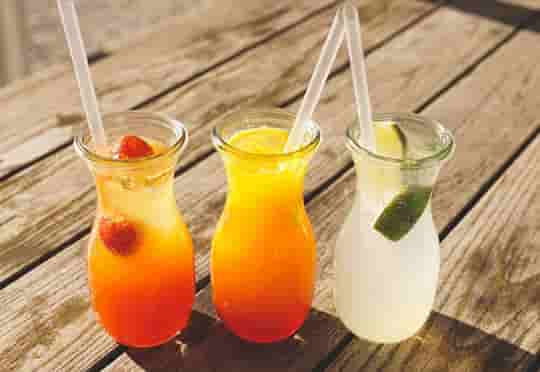How alcohol affects cognitive function, changes how you appear to others and even lowers the risk of some diseases.
How alcohol affects cognitive function, changes how you appear to others and even lowers the risk of some diseases.
1. Better cognitive function
Moderate consumption of wine is linked to higher performance on cognitive tests, research has found.
The study followed 5,033 people in Norway who were tracked for over 7 years.
Moderate consumptions was defined as drinking wine at least four times over a two-week period.
There was no link between drinking wines and spirits and improved cognitive function.
Women who did not drink wine actually had significantly lower scores on the tests.
2. You look more attractive
One or two glasses of wine can make the drinker look more attractive to others, a study finds.
Three or four glasses, though, does not make a person look more attractive than when they are sober.
This is different to the ‘beer goggles’ effect, which is well known: that alcohol makes other people look more attractive.
This is the first study to show that it works both ways, as the authors explain:
“The present study suggests that alcohol consumption increases ratings of attractiveness of the consumer by other people.
That is, in addition to perceiving others as more attractive, an alcohol consumer may also be perceived by others as more attractive, and therefore receive greater sexual interest from potential mates.”
3. Lower Alzheimer’s risk
One drink a day (or less) for women and 1-2 drinks (or less) for men reduces the risk of developing dementia, a study has found.
It works out to between 8 and 14 drinks per week.
The study is one of the largest — and longest — to look at the connection between alcohol and dementia.
Dr Kaycee Sink, one of the study’s authors, said:
“As of yet, we still have no cure for Alzheimer’s disease and other dementias, so it is important to look for things that might help people prevent the disease.
Moderate alcohol intake has been linked to lower risk of heart attacks, stroke, dementia, and death in middle-aged adults, but there is still controversy about alcohol intake in older adults.”
4. Lower risk of depression
Wine drunk in moderation can reduce the risk of developing depression, research finds.
Moderate alcohol intake can have a similar protective effect on depression as that found for heart disease.
Professor Miguel A. Martínez-González, one of the study’s authors, said:
“Lower amounts of alcohol intake might exert protection in a similar way to what has been observed for coronary heart disease.
In fact, it is believed that depression and coronary heart disease share some common disease mechanisms.”
5. Better memory for the past
For people over 60, light or moderate alcohol intake is associated with better recall of past events, according to a study.
Links were also found between increased size of the hippocampus — the area of the brain crucial to memory — and moderate alcohol consumption.
The study, published in the American Journal of Alzheimer’s Disease and Other Dementias, used data from almost 700 people who have been followed since the 1970s.
The results showed that people who drank alcohol lightly or moderately had better memories for past events, although there was no association with overall mental ability.
6. Improved spatial memory
One to three glasses of champagne each week could slow memory loss from ageing, research finds.
Scientists have found that phenolic compounds in champagne can help improve spatial memory.
The phenolic compounds come from the Pinot Noir and Pinot Meunier red grapes which are used alongside Chardonnay in the production of champagne.
The compounds affect the signals sent from the hippocampus to the cortex.
The compounds were found to slow the age-related decline in this signalling.
.







